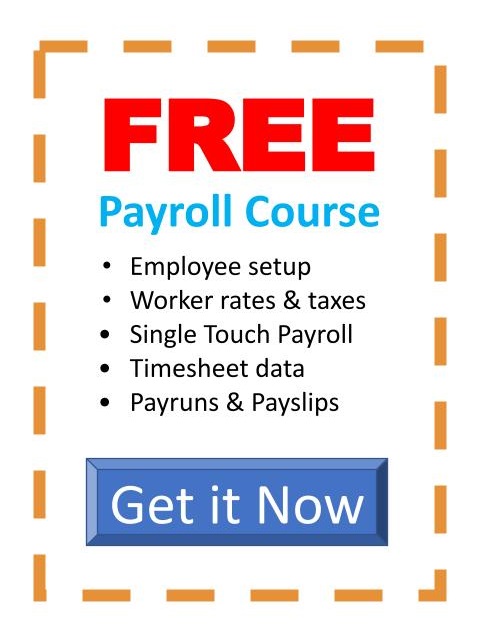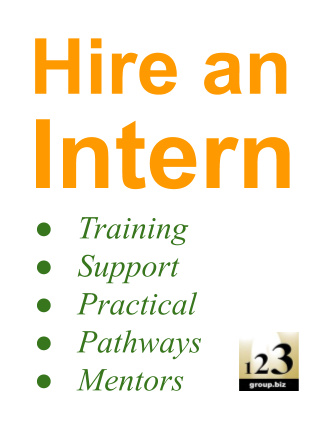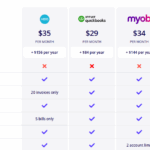How a bookkeeping internship can lead to a great bookkeeping job
 Before a BAS or tax agent can register with the Tax Practitioners Board (TPB) to be allowed to provider services to clients for a fee, they must have worked for between 1,000 and 1,400 hours supervised by another fully qualified BAS or tax agent.
Before a BAS or tax agent can register with the Tax Practitioners Board (TPB) to be allowed to provider services to clients for a fee, they must have worked for between 1,000 and 1,400 hours supervised by another fully qualified BAS or tax agent.
Qualified BAS and tax agents don’t often want to take on student BAS and tax agents, who have no practical skills, and pay them to work on their clients’ accounts — not right off the bat, anyway.
Bookkeeping internships for BAS / tax agents
Many aspiring BAS and tax agents start out as a bookkeeping intern for a period of a few weeks to months, before they get a paid job as a supervised BAS or tax agent. Bookkeeping interns have already completed their Certificate IV in Bookkeeping and will carry out very entry-level tasks, including:
- Data entry from receipts
- Coding transactions against source documents
- Entering and raising invoices in accounting software
- Ad hoc office duties, such as filing.
In an accountant’s practice or tax firm, these tasks would be carried out by a very junior bookkeeper — usually a student bookkeeper or student accountant — and are only worth between $15 and $23 and hour.
In the future, machine learning and artificial intelligence will eliminate these tasks completely, as the profession of bookkeeping comes to rely on intelligence-driven tasks, rather than repetitive, manual tasks.
Until then, they’re good tasks for student BAS and tax agents to learn about bookkeeping, particularly coding transactions. Coding transactions is a critical component of bookkeeping, but it’s also tedious and repetitive and, therefore, easy to make mistakes with.
Common coding mistakes
The most common coding mistakes bookkeepers make are around GST. There are a number of different ways to code GST, depending on the type of transaction, including:
- GST — for purchases that include GST or services with GST listed on the invoice
- GST free — for purchases that are exempt from GST or services that don’t have GST listed on the invoice
- GST on capital — for purchases of fixed assets, such as motor vehicles and equipment
- GST free capital — for purchases of fixed assets that don’t have GST listed on the invoice, such as a computer purchased from a business not registered for GST
- Not reportable or BAS excluded — for transactions where goods or services are not exchanged, such as depreciation, wages, payments to the ATO, transfers between bank accounts.
Can accounting software autocode credit card transactions?
Before accounting software can autocode credit and debit transactions, the transactions themselves will need to be embedded with the items the transaction contained. This sounds simple enough, providing you’re only purchasing one or two items. What about transactions that contain many hundreds of lines in them — a restaurant’s food order for the week, for example.
Banks would need to be using blockchain to store and transfer transaction histories of this kind. Blockchain is an electronic list of records (called blocks) that are linked together (in a chain) using cryptography. The technology was born out of Bitcoin and cryptocurrencies, but it’s increasingly being used by commercial banking organisations to encrypt and store sensitive data — transaction histories and even bank accounts themselves.
For accounting software to autocode transactions stored in blockchain, the accounting software would also need to use blockchain, in addition to machine learning, to access the data and then code it appropriately.
It will happen, but it’s a long way off yet. That said, it’s probably closer to happening than bookkeeping that’s completed by an AI virtual assistant like Alexa or Siri.
***
Are You Looking for Work as a Bookkeeper?
 The Workface CAREER ACADEMY PROGRAM contains information, resources and exercises to help you discover your passions and match them will job opportunities in the financial, administration and accounting industry.
The Workface CAREER ACADEMY PROGRAM contains information, resources and exercises to help you discover your passions and match them will job opportunities in the financial, administration and accounting industry.
We also have a Professional Placement Program for bookkeeping interns who:
- have some bookkeeping qualifications
- may have had some bookkeeping experience (although not essential)
- are willing to volunteer as an accounting internet as part of our Professional Placement Program
You’ll receive training, guidance, project-based placement goals and a program manager. Even more, this placement can help you forge a working relationship which may result in an accounting job or contracting opportunity that suits your skills and lifestyle.



















